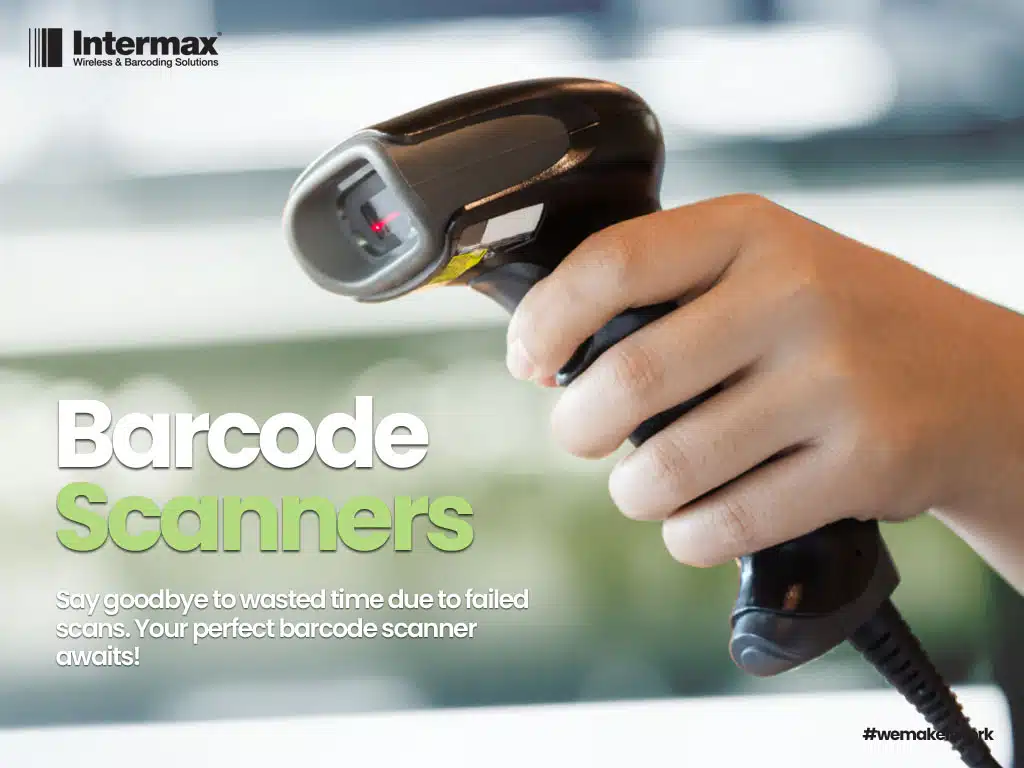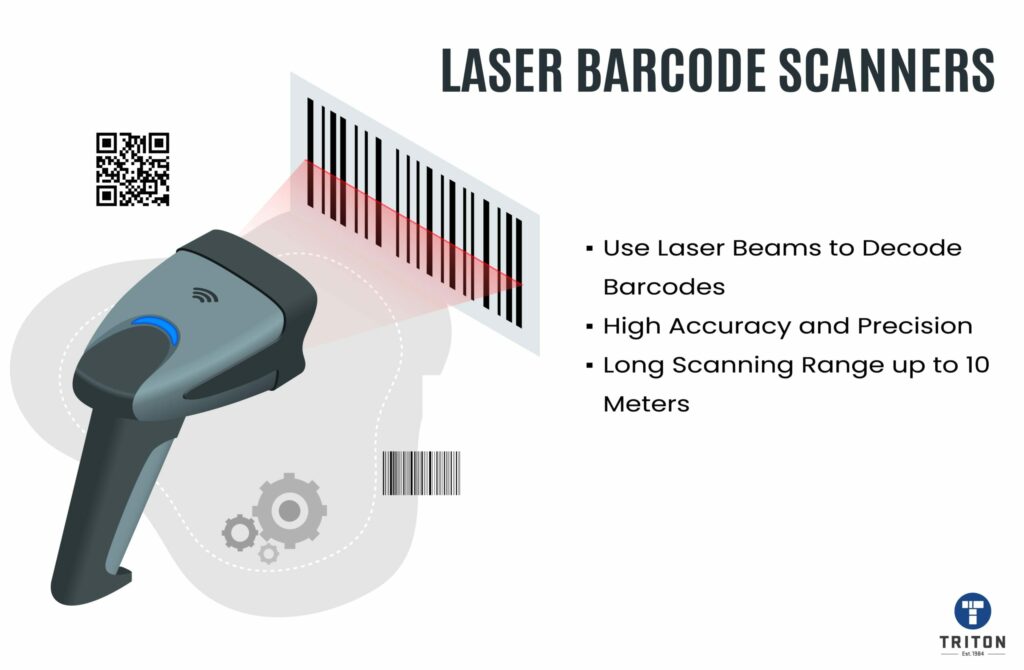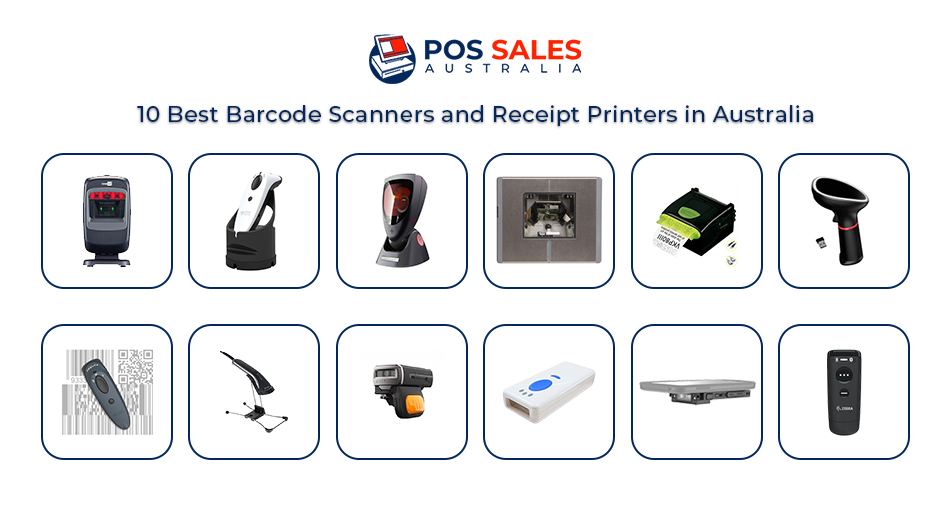Long-Lasting Barcodes Scanners for Industrial Use
Long-Lasting Barcodes Scanners for Industrial Use
Blog Article
Picking the Right Barcode Scanner for Your Service Needs
Choosing the ideal barcode scanner for your business needs a nuanced understanding of your particular operational demands and environmental conditions. Elements such as scanner type, rate, and compatibility with existing systems play an essential role in determining the best selection.
Recognizing Barcode Scanner Types
When it concerns choosing a barcode scanner, understanding the various types offered is crucial for conference certain business needs. Barcode scanners can be classified into numerous types, each designed for different applications and settings.
Portable scanners are one of the most typical, providing portability and simplicity of use, making them ideal for retail and stock administration. They normally attach by means of USB or Bluetooth, offering adaptability in operation. Fixed-mount scanners, on the other hand, are created for high-volume scanning applications, typically found in production line or checkout counters. These scanners are placed in a stationary position, allowing for quick scanning of several products one by one.
One more type is the mobile computer system, which combines scanning capabilities with calculating power. These tools are suitable for field procedures or storage facility monitoring, allowing data collection and real-time stock monitoring. In addition, there are commercial scanners that are developed to endure harsh environments, such as severe temperatures or direct exposure to dirt and dampness.

Trick Features to Consider
What vital functions should businesses prioritize when choosing a barcode scanner? Scanning rate is crucial, as faster scanners improve functional performance, particularly in high-volume settings. The scanner's capacity to check out different barcode layouts is also important; ensure it supports popular types like QR codes, UPC, and Code 128 to suit diverse stock things.
Durability is another crucial feature, particularly for companies in sturdy setups. Look for versions that are developed to hold up against declines, dust, and dampness. In addition, consider the connection options readily available; whether you choose USB, Bluetooth, or Wi-Fi, the right connection can improve integration with existing systems.

Assessing Your Service Setting
To effectively select a barcode scanner, organizations should analyze their specific operational environment. This evaluation includes examining the physical format of the work area, the nature of the products being checked, and the regular problems under which scanning takes place. A retail setting might call for handheld scanners that can rapidly process transactions at try these out the check out, while a storage facility setup could profit from ruggedized scanners developed to withstand harsher conditions.
Furthermore, take into consideration the quantity of scanning called for. High-throughput environments may require sophisticated scanning innovations, such as fixed-position scanners or smart phones that can operate efficiently in fast-paced circumstances. The combination capacities with existing inventory management systems additionally play a vital duty; ensure the chosen scanner can perfectly link with software program systems being used.
Furthermore, evaluate the capacity for growth and scalability. A scanner that satisfies present demands might not suffice as business expands. By extensively assessing these factors, businesses can select a barcode scanner that not only meets immediate requirements however also sustains lasting functional performance and adaptability. This tactical strategy eventually adds to smoother procedures and boosted productivity.
Budgeting for Your Scanner
Having assessed the operational atmosphere and recognized the certain requirements for a barcode scanner, the next action includes mindful budgeting to ensure a clever monetary investment. Establishing a budget plan begins with determining the general expenses related to the scanner, including first acquisition price, functional costs, and potential upkeep charges.
When choosing a barcode scanner, think about the series of available alternatives, from portable tools to fixed-position scanners, as rates can vary significantly. It is important to balance cost with performance; selecting a more economical version may bring about boosted functional inefficiencies if it does not satisfy your organization needs.
Along with the hardware, consider prices related to software program, training, and possible upgrades. While it could be tempting to reduce in advance expense, spending in a top quality scanner that lines up with your functional needs can generate long-term cost savings with boosted performance and reduced downtime.
Finally, take into consideration the total expense of possession, which includes the scanner's life-span and potential resale worth. By diligently planning your budget, you can make sure that your financial investment in a barcode scanner will enhance your operational productivity and monetary efficiency.
Assimilation With Existing Systems
Integrating a barcode scanner with your existing systems is crucial for maximizing its performance and ensuring seamless operations. barcodes scanners. A well-integrated scanner improves operations effectiveness, reduces mistakes, and increases data handling. When picking a barcode scanner, consider compatibility with your present software program and hardware infrastructure, including your stock monitoring systems, point-of-sale (POS) systems, and venture source preparation (ERP) remedies
Review whether the scanner makes use of basic protocols such as USB, Bluetooth, or Wi-Fi, which can help with easy integration. Additionally, assess whether the scanner's software supplies APIs or SDKs that permit for modification and combination with exclusive systems. This is especially crucial for companies with look at more info distinct operational needs.
In addition, take into consideration the scalability of the scanning service. As your organization grows, your systems must have the ability to accommodate additional scanners and manage raised data volumes without substantial reconfiguration. Inevitably, buying a barcode scanner that flawlessly integrates with your existing systems will certainly generate long-lasting advantages, redirected here boosting accuracy, efficiency, and general performance within your procedures. Make the effort to completely assess your combination requires prior to making an acquisition choice.

Final Thought
In conclusion, selecting an appropriate barcode scanner necessitates a thorough assessment of different variables, consisting of scanner types, vital features, and the particular organization setting. The ideal barcode scanner serves as an important tool in improving processes and promoting efficient supply management.
Report this page